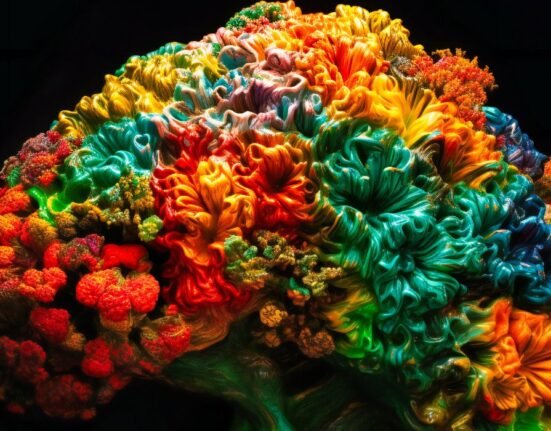Children are always capable of learning various things at various stages. Every child has a calibre in every field of learning. Their cognitive skills include long-term memory, short term memory, logic and reasoning, attention, visual processing, and auditory processing. They are also capable of processing speed. Every child differs in different cognitive Strengths and capabilities. Some of them have strong memories, exceptionally excel in logic and reasoning. But some children struggle to pay attention or struggle to understand even a Single frame of the word. And most of them even find difficulties in reading out. The Struggle that most children have to face shows lacking cognitive training. These children Find difficulties in learning and using certain academic skills. It can be termed a learning Disability.
Learning disabilities in children affect the cognitive processes and they may sometimes Achieve unexpected academic underachievement if compared to their intellectual ability, but on the other hand, they can even achieve academic success. It is vary Great in terms of functions as it is very complex. Learning disability cannot be seen as Unlike a physical disability, but its functions have an impact and to what degree that impact Is felt by the child. Learning disabilities range in severity (mild, moderate, severe) and these Ranges include difficulties in language processing, memory and attention, retention, visual spatial Processing, phonological processing, planning and decision making and processing Speed.
The term “Learning Disability” Does Not Include In Dsm-5, Instead, It Has Been Included As A “Specific Learning Disorder” Under The Category Of Neurodevelopmental Disorder.
These neurobiological factors include epigenetics, genetics and certain environmental Factors which somehow affect the brains’ ability to perceive the coming information Accurately. It is quite common to see such problems among children. Many of them have Difficulties in reading, writing, and understanding general comprehension or mathematical equations. These lacking, somewhere are a burden to most of them as they can see that one or more peers from the same class excelling in many fields. Sometimes it also leads to Emotional turmoil.
Children with LD mostly have poor cognitive abilities and are not able to grasp any coming Information quickly, poor concentration in any kind of subject, ADHD, less engagement in Many activities, lack of social interaction, unhappiness most of the time, lack of self-confidence, showing symptoms of aggression for not being able to cope with the situation, Delinquencies, changing pattern in sitting or walking style, less sleep etc. These children are Mostly seen to stay aloof from the group. Some even stop interacting with others because They feel humiliated and less important. Children with LD are seen to have a spectrum of anxiety disorders and mild depression.

Many studies and research are showing that Because of learning disabilities. Some children experience a great deal of social-emotional and behavioural problems due to difficulties in learning. Researches also show that boys More or less develop, conduct disorder, anxiety disorder and social maladjustment even due to culture-related issues such as language, race, culture or socio-economic status.
Culture-Related Learning Disabilities
Some are even found to be having ADHD and restlessness. Difficulties in reading, which we term dyslexia, is a problem in which the child has problems with fluent word recognition. They are poor in decoding and spelling abilities. One more Thing that we have to keep in mind is that apart from having these problems. It is also important to specify if the child is having other difficulties such as difficulties with reasoning or solving a math problem or reading comprehension.
Also followed by difficulties in Inaccuracy with spelling, grammar, or punctuation and clarity with written expression. As mentioned earlier, some of them even have difficulties with numerical information, which We term dyscalculia, a problem in which the child faces difficulties in learning arithmetic and performing fluent calculations. It is also very important to specify if there are some other Difficulties such as performing math reasoning or word reasoning. Learning difficulties Mostly begin in the school years, when it demands the required skills for exceeding the Individual’s learning capacity.
The Onset of Learning Disorder
The onset of a learning disorder can be usually seen when a child enters an elementary School, where they are required to read, learn or write. Their problems can be observed When they have trouble learning nursery rhymes even after repetition. Such symptoms can Be observed in preschool and kindergarten when some children can be observed while using Mispronouncing words and having trouble remembering words or letters or are unable to recognize their names. Some children may have a problem breaking down the words into Syllables and spelling them properly. Some may even be unable to recognize phonemes. Children when they reach elementary school, find difficulties in speaking fluently by Decoding. It can also be seen that they still find difficulties in solving math reasoning or Problems.
The children, mostly struggle to understand the weight of a sentence or a Mathematical equation. These problems persist from primary grades to middle grades. They Still find problems in recognizing and manipulating phonemes and are unable to read one Common syllable word (e.g. “aminal” for “animal”, “laugh”, “ear” for “year”, “tree” for “three”, “b” as “d”). Middle-grade children also show poor comprehension skills with or without inaccurate readings. Initially, most of them get their pronunciations right, but as Slowly they proceed for further reading they express fear of reading aloud. Even in Numerical calculations, they are very poor in decoding and unable to solve mathematical Problems solving. They even find difficulties in subtraction or addition and multiplication and later complain about the part they find hard and slowly start to avoid it.
Diagnosing Learning Disabilities Related To Children
Well, there are several marked problems with lots of difficulties in reading, writing, Mathematics and poor achievement scores in academics. Speech delay and cognitive Delaying can be problematic in future in reading or writing expression.
Academic and Cognitive Processing Skill Deficits
According to DSM-5 criteria, diagnosing a learning disorder does not require any assessment of standardized intelligence quotient (IQ), unless any suspect regarding any developmental Delays or intellectual disabilities are found to assess the cognitive process.
Learning disability is not a disease or something to be ashamed of. Many children find Themselves in difficulties but later on achieve great milestones in their lives. Going through Certain sources, it was found that even Albert Einstein. One of the most influential physicists of the 20th century was dyslexic. He loved mathematics and science, but he disliked Grammar and always had problems with spelling. It is very important to detect, diagnose and treat learning disabilities at an early stage. Starting from emotional problems like Frustration, disappointment, sadness and aggression. And these emotional problems can be Converted into behavioural problems. Stress, causing misunderstanding, and blaming Parents shall be developed if proper diagnosis if not taken at the very initial stage. Hence, if needed professional help can also be an option for the better future of the child.













Leave feedback about this